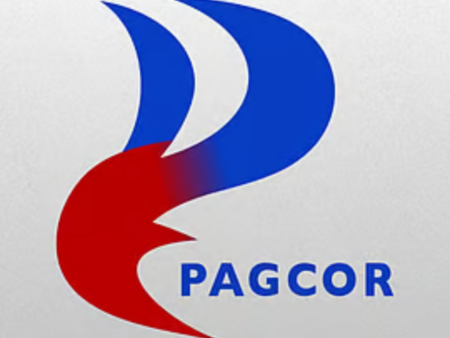The Alberta Government has made the controversial decision to cut funding for the Problem Gambling Resources Network (PGRN), a non-profit organization dedicated to providing education and support for individuals struggling with gambling addiction. The decision comes as the province considers expanding its online gambling market by permitting private operators, following Ontario’s regulatory model.

Alberta Government Cuts Funding for Problem Gambling Resources Network Amid Online Gambling Expansion Plans
Financial Impact on the Problem Gambling Resources Network
Ray Reshke, the Executive Director of the Edmonton-based network, expressed deep disappointment over the funding cut, stating that the CA$130,000 (US$90,000) annual funding represented 95% of the organization’s budget. Without government support, PGRN will likely be forced to cease operations.
Since its establishment in 1993, PGRN has received some form of government support and has played a crucial role in assisting problem gamblers. The organization’s services include:
- Directing individuals to Gamblers Anonymous and Alberta Health Services.
- Supporting the Alberta Gaming, Liquor and Cannabis (AGLC) voluntary self-exclusion program.
- Delivering educational presentations in schools and workplaces.
Over the years, the organization has reached approximately 250,000 people through 10,000 presentations. The loss of funding has raised concerns among experts and advocates regarding the future of problem gambling education and prevention in Alberta.
Government Justification and Response to Backlash
The Alberta government has defended its decision by arguing that PGRN does not provide direct treatment services. Jessica Conlin, spokesperson for Recovery Alberta, stated that the province intends to reallocate resources to frontline addiction and mental health services instead.
Conlin encouraged individuals affected by problem gambling to utilize the Addiction and Mental Health Helpline, which connects callers to professional support. However, critics argue that cutting preventative education and outreach programs could lead to an increase in gambling-related harm, especially with the potential expansion of private online gambling in the province.
Opposition and Industry Criticism of the Funding Cut
The New Democratic Party (NDP) and various addiction recovery advocates have strongly criticized the funding cut, warning that removing educational and preventative resources could exacerbate gambling addiction rates. Janet Eremenko, NDP mental health and addictions critic, called the decision irresponsible, citing Alberta’s annual gambling revenue exceeding CA$2 billion as a reason why continued support for problem gambling services should be a priority.
Eremenko also raised concerns about the timing of the funding cuts, particularly as the province considers allowing private operators into the online gambling market. She argued that increasing gambling accessibility without robust support services could result in higher addiction rates and social consequences.
Alberta’s Potential Shift Toward Private Online Gambling
In recent discussions, Service Alberta Minister Dale Nally acknowledged that Alberta’s current online gambling landscape lacks proper regulatory structure, referring to it as the “Wild West.” The government is now exploring an Ontario-style model, which permits licensed private operators to offer online betting services under government regulation.
Ontario’s model, launched in April 2022, has successfully attracted numerous private gambling operators, leading to a more competitive market while generating significant tax revenue. Alberta is considering a similar approach, though no final decision has been made regarding implementation.
Supporters of the shift argue that a regulated private market could enhance player protection measures and reduce illegal gambling activity. However, opponents fear that increased accessibility could heighten gambling addiction rates, particularly without adequate public awareness and prevention programs in place.
The Importance of Problem Gambling Education and Support
Experts in addiction recovery emphasize that preventative education plays a vital role in mitigating the risks associated with gambling addiction. Programs like PGRN have historically filled this gap by offering resources, awareness campaigns, and community outreach.
Without early intervention measures, the province may see a rise in gambling-related problems, including financial hardship, mental health struggles, and family disruptions. The absence of structured educational initiatives could place additional strain on the province’s already burdened mental health services.
What’s Next for Problem Gambling Support in Alberta?
With the impending shutdown of Problem Gambling Resources Network, Alberta will need to rely on alternative gambling support systems. Individuals struggling with gambling addiction can still access help through:
- Gamblers Anonymous (GA) support groups.
- Alberta Health Services’ addiction programs.
- The Addiction and Mental Health Helpline.
However, the loss of community-based education and outreach programs leaves a significant gap in gambling harm reduction efforts. Advocates are calling on the government to reconsider its decision or, at the very least, allocate alternative funding for gambling prevention initiatives.
Conclusion: Balancing Gambling Expansion with Responsible Gambling Measures
The Alberta Government’s decision to cut funding for Problem Gambling Resources Network has ignited a debate about the balance between gambling expansion and responsible gambling initiatives. While the province explores new revenue opportunities through private online gambling operators, concerns remain about the potential harm to vulnerable individuals.
FAQs About Alberta Government Cuts Funding for Problem Gambling Resources Network
1. Why did the Alberta Government cut funding for the Problem Gambling Resources Network (PGRN)?
The Alberta Government justified the funding cut by stating that PGRN does not provide direct treatment services. Instead, the province plans to reallocate resources to frontline addiction and mental health support.
2. How much funding did the Problem Gambling Resources Network receive?
The organization received approximately CA$130,000 (US$90,000) annually, which accounted for 95% of its operating budget.
3. What services did the Problem Gambling Resources Network provide?
PGRN offered various services, including:
- Directing individuals to Gamblers Anonymous and Alberta Health Services for support.
- Assisting with Alberta Gaming, Liquor and Cannabis (AGLC) voluntary self-exclusion programs.
- Providing educational presentations in schools and workplaces.
4. How many people have benefited from PGRN’s programs?
Since its establishment in 1993, PGRN has reportedly reached 250,000 people through approximately 10,000 presentations.
5. What alternative resources are available for problem gambling support in Alberta?
Individuals struggling with gambling addiction can seek help through:
- Gamblers Anonymous (GA) support groups.
- Alberta Health Services’ addiction programs.
- The Addiction and Mental Health Helpline.
6. What concerns have critics raised about the funding cut?
Critics, including opposition NDP mental health and addictions critic Janet Eremenko, argue that the move is irresponsible given Alberta’s CA$2 billion annual gambling revenue. They also highlight the potential risks of gambling expansion without adequate harm prevention measures.
7. How does this decision relate to Alberta’s potential online gambling expansion?
Alberta is considering allowing private operators into the online gambling market, similar to Ontario’s model. Critics worry that cutting problem gambling resources while expanding gambling accessibility may lead to increased addiction rates.
8. What has been the government’s response to these concerns?
Jessica Conlin, spokesperson for Recovery Alberta, stated that individuals affected by gambling problems should use the Addiction and Mental Health Helpline for professional assistance.
9. What is the Ontario-style gambling model, and how does it impact Alberta’s decision?
Ontario introduced a privatized online gambling market in April 2022, allowing licensed private operators under government regulation. Alberta is exploring a similar system but has not yet finalized its decision.
10. How could the lack of gambling education impact Alberta’s residents?
Without preventative education programs like those provided by PGRN, experts warn of potential increases in gambling-related problems such as financial hardship, mental health struggles, and family disruptions.
11. What has Service Alberta Minister Dale Nally said about the gambling market?
Minister Dale Nally referred to Alberta’s online gambling landscape as the “Wild West”, emphasizing the need for proper regulations while considering the Ontario model for better oversight.

















